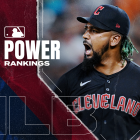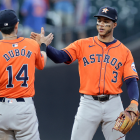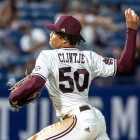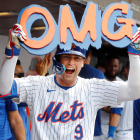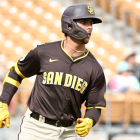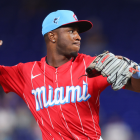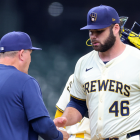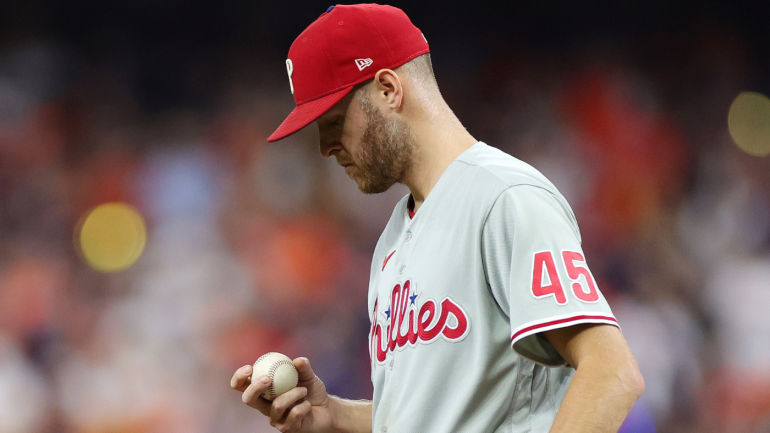
Coming into the World Series matchup between the upstart Philadelphia Phillies and favored Houston Astros, a reasonable assumption is that the Phils would go as far as their tandem aces – Aaron Nola and Zack Wheeler – would carry them. On the one hand, the Phillies successfully punched up by splitting the first two games in Houston and in essence seizing home-field advantage in what's now a best-of-five series for the belt and the title.
On the other hand, they achieved that split despite subpar results from Nola and Wheeler, and that raises concerns moving forward into the remainder of the series.
In Wheeler's case, he flashed diminished velocity in Game 2 (when he allowed four earned runs in five innings), but that's only relative to his earlier – and very dominant – work in these playoffs. As Todd Zolecki notes, Wheeler's fastball in Game 2 against the Astros averaged 96.2 mph in the first inning, which was down significantly from his first-inning average of 98.3 mph in his prior postseason starts. That said, he was able to recoup a bit of fastball oomph later in his outing, and overall in Game 2 Wheeler's velocity numbers weren't all that far off from his regular-season norms.
This may be a case of those prior postseason starts being outliers in terms of Wheeler's early velocity. During the regular season, his four-seamer averaged 96.7 mph in the first inning. So in Game 2 against Houston, yes, his first-inning fastball was down half-a-tick relative to his regular-season norms, but that's not a hugely concerning deficit. Again, the extra early velo he enjoyed during the Wild Card Series, NLDS, and NLCS is what stands out, not the most customary readings in his World Series start.
Wheeler is lined up to start Game 6 in Philly (if necessary), and his early fastball readings may be a tell as to whether he's back to Elite Playoff Demigod mode or "merely" the very good starting pitcher he was during the regular season.
As for Nola, his velocity and spin rate were all up significantly in his Game 1 start against the Astros, which could be a partial function of his having pitched on eight days of rest. In what's probably a related matter, he struggled with his command in Game 1. Extra velocity and spin are very good things in theory, but they must be harnessed.
His pitch mix in Game 1 (when he allowed five earned runs in 4 1/3 innings) was also largely identical to what he used in dominating the Astros in the final game of the regular season (against a largely standard Houston lineup). The difference is found in results – Nola was in the strike zone more often in that regular season start, and in Game 1 Kyle Tucker touched him for a pair of home runs. Limiting long balls is one of Nola's established skills, and spikes, such as the one Tucker and the Astros enjoyed in Game 1, can be just random noise. Looking toward Nola's start in Game 5, the hope for Philly is that his command and control respond positively to extra rest and that he can keep the ball in the park.
More broadly, the front of the rotation is one of the few advantages the Phillies would seem to have in this series. That the game tally is even in spite of the fact that said front of the rotation has allowed 10 runs in 9 ⅓ innings combined is at once fortunate and concerning from the Philly standpoint. What they'll need to capitalize on that seeming advantage is vintage Nola followed by, perhaps, pre-Game 2 playoff Wheeler. The latter is obviously a fairly specific entreaty, but that's the nature of trying to pull off what would be one of the biggest World Series upsets on record.










